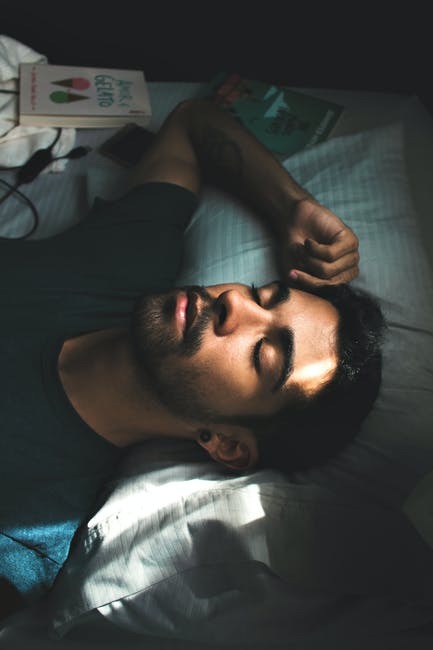The importance of getting a good night’s sleep cannot be overstated when it comes to recovery. Due to the physical, mental, and emotional demands of recovery, it is essential that individuals prioritize their sleep schedules. In order to begin doing this, individuals must understand more about how and why sleep is so vital during this time in their lives.
Why Is Sleep So Important?
The body needs a certain amount of sleep each night in order to function properly. This means that the amount of sleep an individual gets each night can significantly impact many areas of their life.
According to the Centers for Disease Control and Prevention (CDC), the average adult needs approximately seven hours of sleep per night at least. Without a regular sleep schedule that ensures seven hours of uninterrupted sleep, individuals will experience many negative impacts due to the disruption of their bodies’ daily functioning. These consequences include:
- Feelings of depression
- Heightened anxiety
- Mental fogginess
- Slower reaction time
- Reduced immune system functioning
- Higher chance of having a stroke
- Weight gain
- Reduced cognitive abilities
- Higher risk for developing heart disease or having a heart attack
The body needs a certain amount of restful sleep to function normally every day. Without this, the body is barely able to function, let alone process difficult thoughts, emotions, and concepts. This means that not getting enough sleep makes the recovery process that much more difficult. In order to be able to be self-aware enough to identify and change harmful thoughts and behaviors, individuals must ensure that their bodies are prepared as much as possible. Getting enough sleep each night can help individuals be prepared to tackle this difficult task and achieve lasting sobriety.
How To Begin Getting More Sleep
Changing sleeping patterns is not easy. That does not mean that it is impossible to accomplish. Below are ways individuals can begin getting more sleep each night in order to be prepared for the challenges of recovery:
#1. Do Fun Things To Relax Your Body
About an hour so before bed, it can be helpful to engage in activities that help to relax the body. If these activities are fun, individuals will be more apt to implement them in their routines in a way that sticks. Some of these activities include:
- Light yoga
- Easy stretches
- Rolling out tight muscles with a foam roller or a tennis ball
- Lighting lavender-scented candles or incense
- Lay on the floor with legs straight up against the wall while listening to calming music
#2. Shut Off Electronics Before Bed
Using electronics before bed makes falling asleep significantly difficult for individuals. The light from these devices can trick the body into thinking that it is daytime, thus working to keep the body awake. By making it a priority to shut off all electronics — including televisions, phones, and laptops — individuals can be better prepared to go to sleep.
#3. Make The Sleep Environment Optimal
There are a few factors that can make a huge difference in a person’s sleeping environment. One such factor includes the temperature in the room the person is sleeping in. If the temperature is too warm, this will make it difficult to fall asleep. Alternatively, if the area is cooler, this will help the body to be comfortable enough to fall asleep and stay asleep.
Another factor includes the amount of light that is in the room. Similar to electronics, light of any kind that is emitting into the sleeping area can cause individuals to stay awake even when they do not want to. Some of these sources of light can include sunlight, street lights, or any lights that might be turned on in other areas of the living area. Ensuring that no light is seeping into the room can help individuals improve the quality of their sleep each night.
#4. Don’t Consume Caffeine Late in the Day
Even though it may not feel like it, the effects of caffeine can impact individuals’ bodies long after consuming it. This means that if individuals consume caffeine late in the day, it can impact their ability to fall asleep or stay asleep. Individuals should make it a priority to not consume caffeine too late into the day in order to avoid sleep disruptions later on. This includes staying away from beverages such as coffee and even some types of teas.
If individuals are having a difficult time staying away from caffeinated beverages after a certain time in the day, there are alternatives they can try that will not cause significant disruption to their sleep later on. Some alternatives include:
- Decaffeinated coffee
- Chamomile tea
- Sparkling water
- Mint tea
- Hot apple cider
- Milk
- Lemon ginger water
- Turmeric latte
Getting enough sleep is essential for your body’s basic functioning. If you do not get enough sleep during your recovery journey, your challenges will become that much more difficult. Getting enough sleep can help prepare you for the hardships of recovery. To begin getting more sleep, you can try doing fun things to relax your body before bed, shutting off your electronics before bed, making your sleep environment optimal, and not consuming caffeine too late in the day. Recovery is an incredibly difficult journey. Even with the proper amount of sleep, you may have your fair share of obstacles. If you need help during this time, reach out to those of us at West Coast Recovery Centers. Not only can we provide you with the necessary skills you need to achieve your goals, but we can also provide you with continuous encouragement. Call us at (760) 492-6509.




